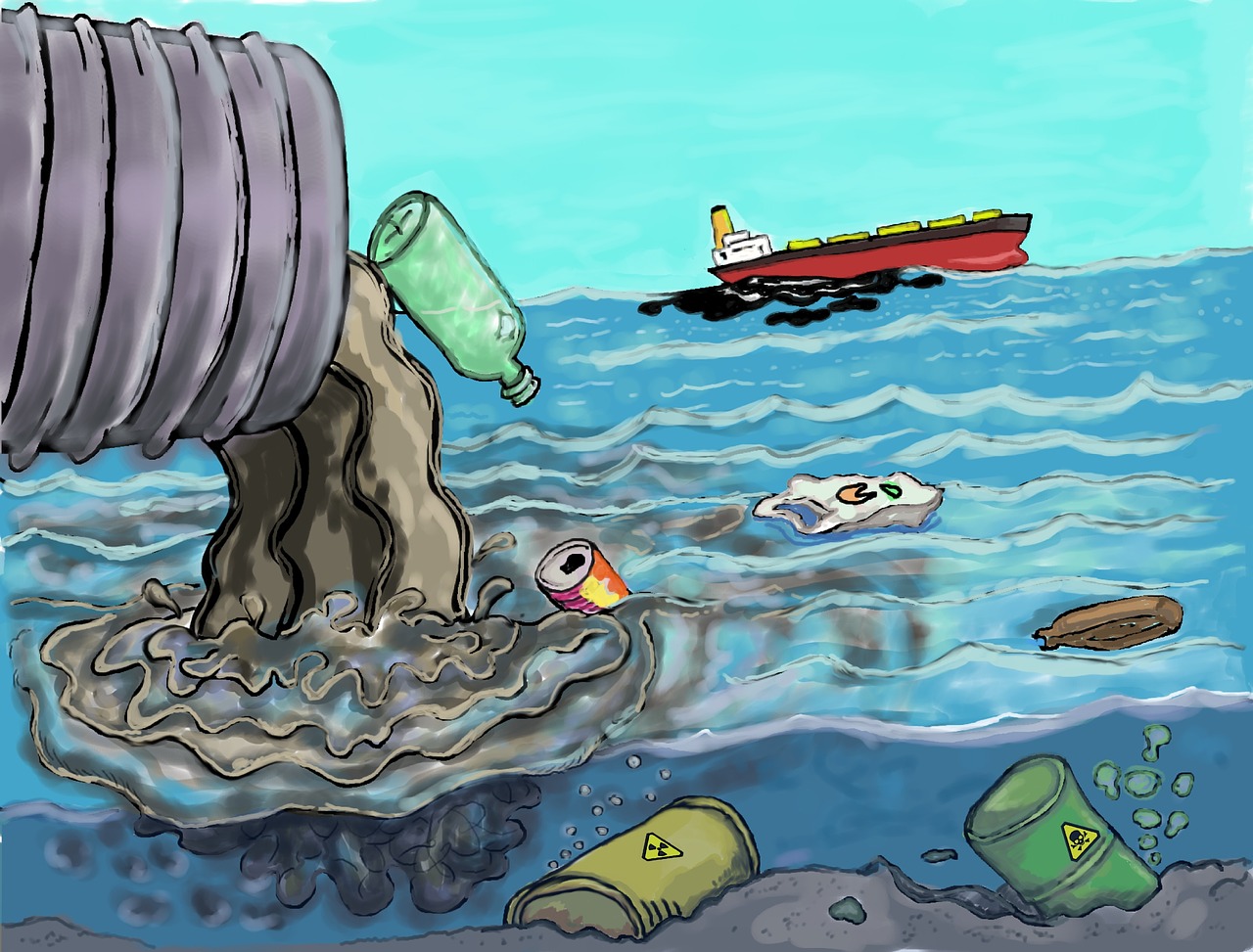Table of Contents
ToggleIntroduction:
Water pollution is one of the most serious environmental problems we face today. It affects not only the health of humans but also the well-being of the planet. Water is essential for life, and without clean and safe water, our health and the environment are at risk. In this article, we will explore the impact of water pollution on our health and the environment, the causes of water pollution, and the solutions to this growing problem.
Causes of Water Pollution:
Water pollution is caused by a variety of factors, including:
- Industrial Activities: Many industries, such as oil and gas, chemicals, and manufacturing, discharge their waste products into rivers and oceans, leading to water pollution.
- Agricultural Activities: The use of pesticides, herbicides, and fertilizers in agriculture can also contaminate water sources.
- Municipal Wastewater: Sewage and wastewater from cities and towns are often discharged into nearby rivers and oceans without proper treatment, leading to water pollution.
- Oil Spills: Accidents like oil spills can also cause water pollution, which can have catastrophic effects on aquatic life and ecosystems.
Water pollution can come from both point sources and nonpoint sources. Point source pollution refers to contamination that comes from a single, identifiable source, such as a factory or wastewater treatment plant. Nonpoint source pollution, on the other hand, comes from diffuse sources such as agricultural runoff or stormwater runoff from urban areas.
It is important to note that water pollution and water contamination are not the same. Pollution refers to any substance that enters water and causes harm to the environment or human health. Contamination, on the other hand, refers to any unwanted substance in water, regardless of whether it causes harm.
Effects of Water Pollution on Human Health:
Water pollution can have serious effects on human health. Some of the health effects of water pollution include:
- Waterborne Diseases: Water pollution can cause various waterborne diseases like typhoid, cholera, dysentery, and hepatitis A.
- Cancer: Exposure to certain chemicals and pollutants in contaminated water can lead to the development of cancer.
- Birth Defects: Prenatal exposure to certain pollutants in contaminated water can lead to birth defects and developmental delays.
- Skin Diseases: Skin irritation and rashes can occur when exposed to contaminated water.

Effects of Water Pollution on the Environment:
Water pollution can have disastrous effects on the environment. Some of the environmental effects of water pollution include:
- Dead Zones: Water pollution can create dead zones in oceans and lakes where aquatic life cannot survive.
- Algal Blooms: Excess nutrients in the water from pollution can cause algal blooms, which can be toxic to aquatic life.
- Habitat Destruction: Water pollution can destroy habitats and ecosystems that rely on clean water.
- Climate Change: The carbon footprint of polluted water can contribute to climate change.
Solutions to Water Pollution:
There are several solutions to water pollution, including:
- Reduce Industrial Pollution: Industries can reduce pollution by implementing cleaner production methods and better waste management practices.
- Implement Better Agricultural Practices: Farmers can reduce water pollution by using organic and sustainable farming practices and minimizing the use of fertilizers and pesticides.
- Implement Wastewater Treatment: Municipalities can implement proper wastewater treatment systems to ensure that sewage and wastewater are properly treated before discharge.
- Support Clean Energy: Transitioning to clean energy sources like wind and solar power can help reduce carbon emissions and limit water pollution from fossil fuel-based energy production.
FAQs:
- What is water pollution?
Water pollution is the contamination of water bodies like rivers, lakes, oceans, and groundwater with harmful substances.
- What are the causes of water pollution?
Water pollution is caused by industrial activities, agricultural activities, municipal wastewater, and oil spills.
- What are the effects of water pollution on human health?
Water pollution can cause waterborne diseases, cancer, birth defects, and skin diseases.
- What are the solutions to water pollution?
Solutions to water pollution include reducing industrial pollution, implementing better agricultural practices, implementing wastewater treatment, and supporting clean energy.
Water Quality Index
The water quality index (WQI) is a tool used to measure the quality of water in a particular area. The WQI takes into account various factors such as dissolved oxygen, pH levels, and levels of pollutants to provide an overall score that indicates the health of the water.
Conclusion
In conclusion, water pollution has a significant impact on our health and the environment. Polluted water can cause a range of health problems, from skin irritation to serious diseases such as cancer. It can also harm aquatic life and ecosystems, leading to a decline in biodiversity and a reduction in the availability of resources such as fish.








3 thoughts on “The Impact of Water Pollution on Our Health and the Environment”
Pingback: The Effects of Pollution on the Environment and Human Health
Pingback: How Our Food System is Broken and What We Can Do to Fix It
Pingback: Japan's Plan to Release Treated Water into the Ocean